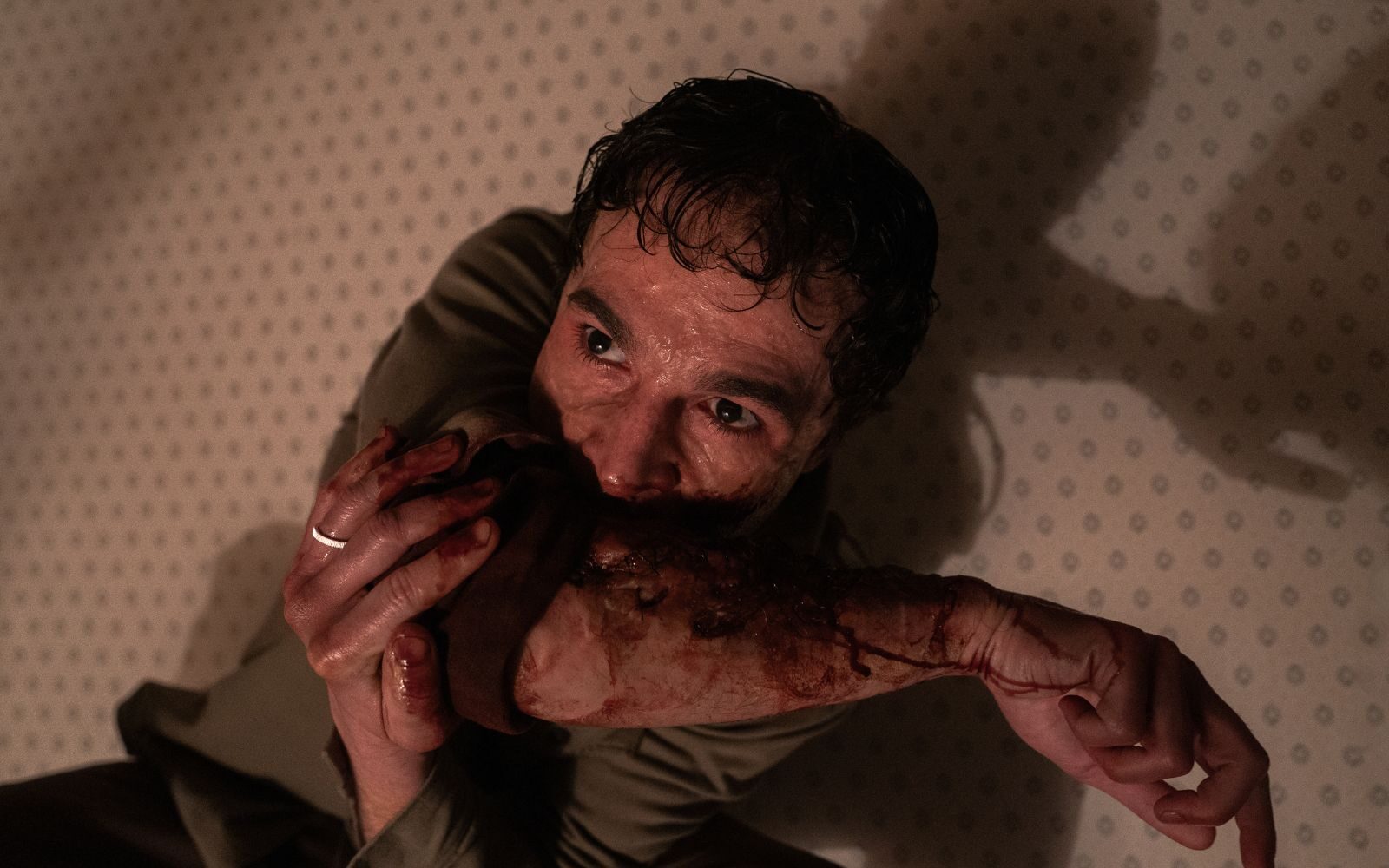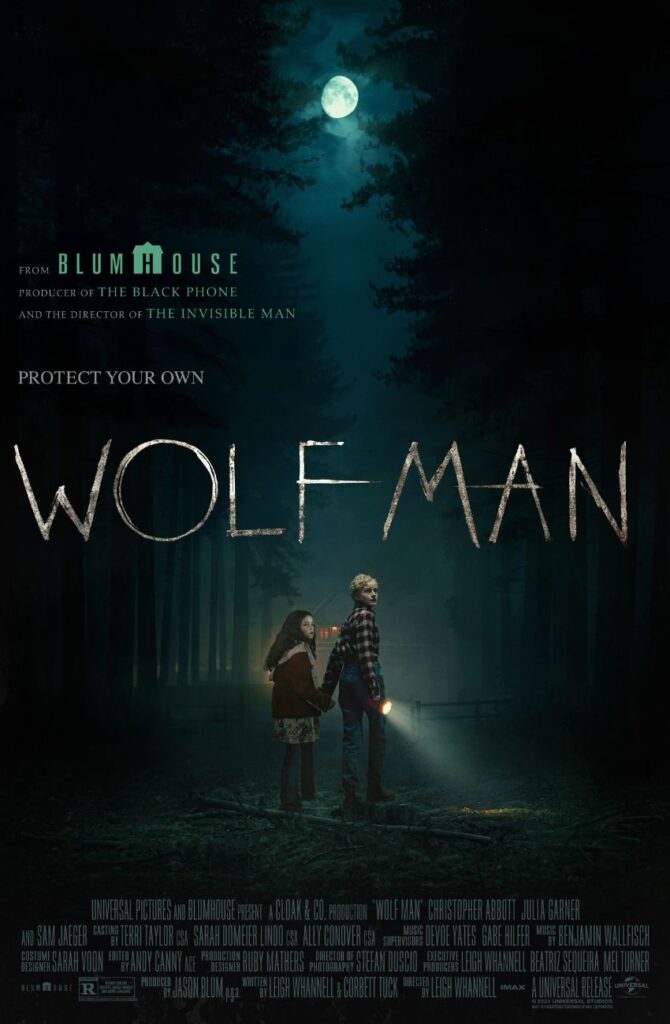
Wolf Man Unleashes a Striking but Half-Hearted Howl
Leigh Whannell’s monster flick takes the werewolf mythos to new, introspective places, but musters an incomplete transformation.
Directed by Leigh Whannell
by Prabhjot Bains
- Published on
After imparting a socially conscious, feminist take on The Invisible Man, writer-director Leigh Whannell returns to the fold with another elevated rendition of a classic Universal monster in Wolf Man. The exercise in atmosphere and character dares to take the werewolf mythos to new and introspective frontiers—employing the lycanthrope’s legend to probe the universal fear of turning into our parents—but for as striking and as crafty as Wolf Man is, it labours to complete its transformation. While Whannell’s film brandishes its fangs, its impression is mostly toothless, resulting in a monster-flick flush with terrifying ideas often left unrealized.
Opening with stunning images of a remote Oregon valley, Wolf Man’s prologue details the relationship between the young Blake and his strict and stifling father, an overbearing survivalist whose military-style discipline not only keeps his son safe from what Indigenous people of the area dub “The Face of the Wolf,” but also drives a wedge between them. Flash to 30 years later and Blake (Christopher Abbott) is an unemployed writer in New York City with his own family. While Blake’s workaholic wife, Charlotte (Julia Garner), is the main breadwinner, it’s a dynamic that lends him more time to devote to his daughter, Ginger (Matilda Firth), who he nurtures in stark contrast to his father’s methods.
With the shadow of the old man still looming, Blake is soon forced to return to his childhood cabin to attend to his now-deceased father’s estate. What begins as a quaint family trip quickly turns deadly, as they are pursued by a seldom-seen creature that appears as both man and animal. As Blake encounters the beast, he begins changing, with his father’s old sins quickly finding newfound life within him.
Yet, none of these ideas are fully fleshed beyond a mere acknowledgement. Wolf Man does succeeds in suspenseful bite-sized portions—one scene finds Whannell making skillful use of negative space, forcing audiences to revel in the dread of a creature’s steamy breath rising from the other side of a hunting blind—the film’s marked desire to provoke an emotional response feels woefully underserved. Wolf Man portrays both an unnerving, gory physical transformation and a rarely depicted psychological one, in the form of a creative ultraviolet point-of-view, but struggles to marry them satisfyingly. In precariously teetering on the edge of guttural horror and emotional reflection, Whannell’s film often sacrifices one for the other, feeling uneven and incomplete—the product of a much more ambitious film waylaid by the demands of its genre.
The greatest werewolf stories bask in catharsis, desire, and tragedy, likening our darkest attitudes to the worst animalistic impulses. Wolf Man constantly tongues at those same traits with great skill and assured performances, but never fully sinks its teeth into them.
Wolf Man is in theatres on Jan. 17, 2025


